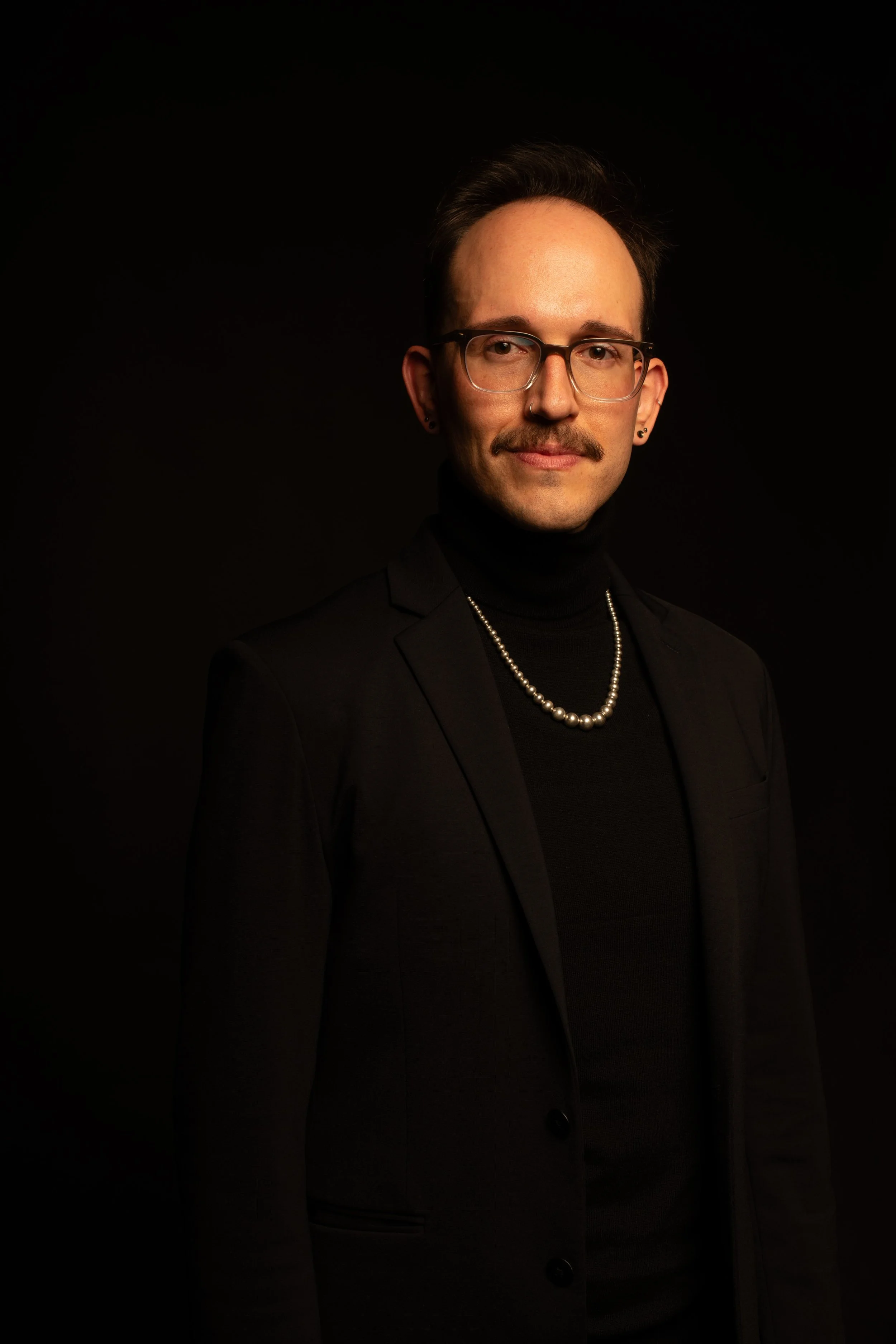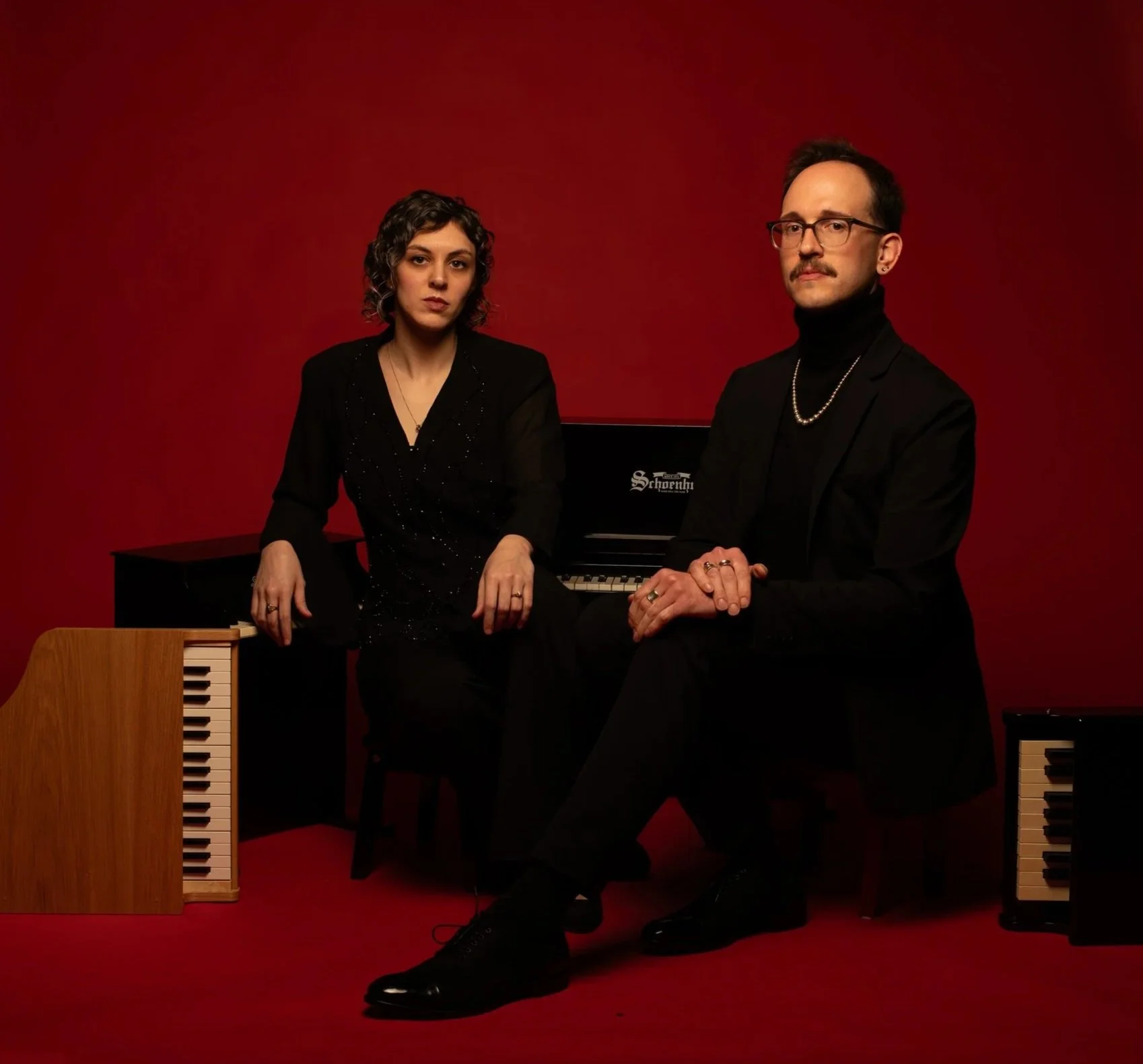שם עברי: מיכאל בן דוד
Pronouns: they/them/theirs
Comfortable bel canto/belt range: F2–G4
(a quota of E2, A4–B4 daily)
Repertoire & Research Interests:
Early Music
Contemporary Classical Music
Contemporary Commercial/Musical Theatre
Extented Techniques
Choral & Vocal Ensembles
Chamber Music
Transgender Voice Care & Training
“Exciting is an apt description of this talented vocalist. Michael Manganiello… shook the floor with their powerful low notes.” Praised for their enviable resonance, crystalline diction, and stylistic prowess, vocalist Michael Manganiello is an “unstoppable creative force” who focuses their work on breaking down and analysing established preconceptions of identity and artistic expression. “They may be placed in the baritone bin, but they’re far more. That’s the issue with fachs–Michael defies them.” (OperaWire, 2023)
In an era when classical music’s institutions are slowly reconciling with the multiplicity of identities that have always hovered at their margins, Michael Manganiello emerges as both emissary and insurgent—a singer whose work unsettles the binaries, not just of gender, but of genre, tone, and tradition itself. Based in Baltimore, Manganiello moves through the vocal arts with a kind of quiet force, not so much demanding space as remaking it.
Their voice—a burnished bass-baritone with a glinting edge—carries the weight of centuries, yet resists confinement. Trained at the Peabody Institute, where they are now completing their doctoral studies and shaping minds as an educator, Manganiello speaks the languages of baroque and bel canto as fluently as that of the contemporary cabaret. But they are not only interested in mere technical facility. Their art insists on a kind of emotional and philosophical clarity: diction as defiance, phrasing as revelation.
A non-binary artist in a tradition that often confuses conformity with excellence, Manganiello crafts programmes that function as both recital and resistance. Their collaborations—especially with pianist Stephanie Baird—interweave lieder and popular song, sacred chant and personal testimony. The effect is not one of juxtaposition but integration: Ralph Vaughan Williams and Jason Robert Brown, Hildegard von Bingen beside Tori Amos. In one recital, they wove BWV 82 and Poulenc’s Chansons Gailliardes among medieval chants, creating a tapestry where sacred and secular voices converse across centuries. In another, they followed Barber's “Must the winter come so soon?” with Regina Spektor's searching I want to sing—the shift feeling less like rupture than recursion—the same yearning, differently expressed.
There is something inherently radical about their calm. In a field still negotiating how to move beyond gendered casting and costume, Manganiello simply sings—anchored in a body that is their own, unflinching in its resonance, challenging assumptions not through confrontation but through the quiet authority of authentic performance. Their teaching, too, bears the mark of this ethos. At Peabody, they are a vital mentor to students finding their vocal identity and artistic self-definition alike, guiding them not toward the “correct” sound, but toward the true one. This approach extends to their work with Peabody's LAUNCHPad, where, as Breakthrough Curriculum faculty and Career Coach, they help emerging artists navigate the complex intersection of artistic integrity and professional development.
On stage and in the studio, Manganiello most vibrantly reveals what classical music might become—not by abandoning tradition, but by inhabiting it differently. Their voice does not erase the canon; it queers it, queers it with purpose, queers it with love.
In another time, their path might have been obscured or denied entirely. In this one, they sing it forward.
Short Bio:
Michael Manganiello is currently a faculty member in the Voice and Professional Studies departments of the Peabody Institute, and a doctoral candidate at the same, where they study with Bill Sharp, Beth Willer, and Patrick O’Donnell. They also work as a Senior Peer Career Coach at the Peabody LAUNCHPad office. Michael graduated from Peabody in 2021 with a master’s degree in Vocal Performance and Pedagogy, and from SUNY Fredonia in 2012, where they earned concurrent bachelor's degrees cum laude in Vocal Performance and Dance, with a minor in Visual Art/New Media. They perform regularly with their friend and collaborative keyboardist, Stephanie Baird, showcasing the duo's innovative programmes which push the boundaries of the song recital, inspired by themes that examine the core of human experience. If the temperature is above 50 degrees, Michael is probably outside planting native wildflowers and heirloom tomatoes.
Very Short Bio:
Michael sings and can teach you how to sing.

